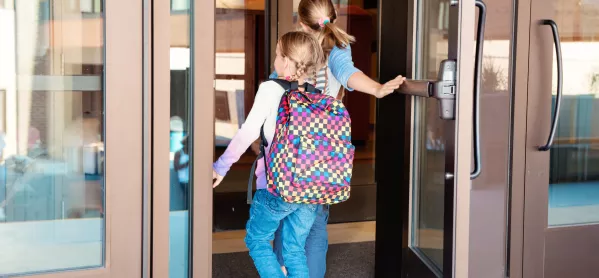Not since the Second World War has any government overseen the widespread closure of schools. And even then, it was not a total shutdown.
However, three weeks ago, education secretary Gavin Williamson announced this unprecedented step in response to the spread of the coronavirus.
Many schools and colleges had thought they might be able to limp on until closer to the Easter holidays. But it had become clear that the rapidly escalating crisis - and the government’s newly introduced rules on self-isolation and social distancing - would make that impossible. Something had to change, and fast.
School and college leaders across the country had four days to work out what they needed to do in order to offer very different care and education for their pupils from the following Monday morning.
They had three vital - and daunting - tasks during those four days. They had to set up provision to look after those children who were still eligible for a school place - those who were particularly vulnerable, and those whose parents had been identified as key workers. They had to make sure that all parents understood what was happening - and to try to get a sense of how many children they might expect through their gates the following week. And they had to think about how the vast majority of children who wouldn’t be in school for the foreseeable future could be supported to continue learning.
Leaders performed astonishing feats in this short time. But many questions and concerns remain. They are very worried about the safety of the children and staff still physically attending. They are implementing social distancing measures as best they can. But this is challenging for everyone - and almost impossible in settings looking after very young children, or those with some special educational needs.
They are also concerned about how they can keep children learning if they’re out of school for weeks or months. What does effective remote learning look like? What is it reasonable to expect teachers - many of whom will be struggling themselves at the moment - to do in terms of online teaching? How can we stop the already huge gap between our most and least advantaged children widening even further?
And they are desperately worried about their most vulnerable pupils - those living in extreme poverty, those at risk of violence, those particularly vulnerable to exploitation. For too many children, school or college provides not just an education, but a safe haven in a chaotic and dangerous world. While some of our most vulnerable children and young people are still in school, the majority are not. What’s happening to them?
What has been amazing - and humbling - is how school and college leaders are tackling these issues, and working together to do so. As with so many other critical workers on the front line in this national crisis, those working in our schools and colleges have risen to the challenge with wisdom, grace and an overwhelming sense of civic duty.
But the crisis has also shone a spotlight on some of the deepest fissures in our society, and the extent to which we rely on our schools and colleges to attempt to fill these. How can we have accepted that, even without the impact the current situation will have on children living in poverty, our most disadvantaged children are almost two years behind other pupils by the time they finish secondary school? How have we allowed ourselves to reach a point at which a school dinner may be the only hot meal some children receive? How have we found ourselves in a situation in which 1 in 10 children are affected by mental health problems, but many have to wait more than a year to receive counselling?
Schools and colleges are doing everything they can - and more - to support children and families through this crisis. What they need in return is for government to fully recognise - and address - the crucial role they play in filling the gaps left by chronic underinvestment in social services, and in our increasingly polarised society.
In the aftermath of the Second World War, the nation embarked on a mission for greater social justice. When the coronavirus emergency eventually ends, it would be a good moment to embark upon a new national mission for a fairer society for all children and young people.
Julie McCulloch is director of policy at the Association of School and College Leaders




